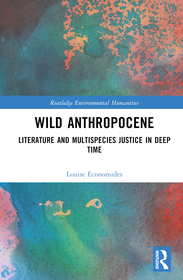
Psychotherapy, the Alchemical Imagination and Metaphors of Substance
Sorozatcím: Medical & Health Humanities; 1;
-
20% KEDVEZMÉNY?
- A kedvezmény csak az 'Értesítés a kedvenc témákról' hírlevelünk címzettjeinek rendeléseire érvényes.
- Kiadói listaár EUR 119.95
-
49 749 Ft (47 380 Ft + 5% áfa)
Az ár azért becsült, mert a rendelés pillanatában nem lehet pontosan tudni, hogy a beérkezéskor milyen lesz a forint árfolyama az adott termék eredeti devizájához képest. Ha a forint romlana, kissé többet, ha javulna, kissé kevesebbet kell majd fizetnie.
- Kedvezmény(ek) 20% (cc. 9 950 Ft off)
- Kedvezményes ár 39 799 Ft (37 904 Ft + 5% áfa)
Iratkozzon fel most és részesüljön kedvezőbb árainkból!
Feliratkozom
49 749 Ft

Beszerezhetőség
Megrendelésre a kiadó utánnyomja a könyvet. Rendelhető, de a szokásosnál kicsit lassabban érkezik meg.
Why don't you give exact delivery time?
A beszerzés időigényét az eddigi tapasztalatokra alapozva adjuk meg. Azért becsült, mert a terméket külföldről hozzuk be, így a kiadó kiszolgálásának pillanatnyi gyorsaságától is függ. A megadottnál gyorsabb és lassabb szállítás is elképzelhető, de mindent megteszünk, hogy Ön a lehető leghamarabb jusson hozzá a termékhez.
A termék adatai:
- Kiadás sorszáma 1
- Kiadó De Gruyter
- Megjelenés dátuma 2023. július 4.
- ISBN 9783111154770
- Kötéstípus Keménykötés
- Terjedelem262 oldal
- Méret 230x155 mm
- Súly 491 g
- Nyelv angol
- Illusztrációk 37 Illustrations, black & white 476
Kategóriák
Hosszú leírás:
Alchemy is popularly viewed as a secret way of turning worthless base metal into gold, and then a precursor to modern chemistry. This is often taken as a metaphor for psychological development. This book describes an innovative "third way" for both the education and exercise of an alchemical imagination that embraces both material matters and psychological insight: alchemy as lyrical poetics, or the intensive production of embodied metaphor. Alchemy here is viewed as an immanent set of metaphor-driven "best practices" for indwelling complex and contradictory earthly matters in a sensual, artistic and humane manner. Or, again, it describes best psychotherapeutic practice. Alchemy is read not as a medium for "personal growth", but optimal co-existence with the natural world. It is an eco-logical rather than ego-logical project with deep aesthetic concerns (education of the senses in close noticing) and political intentions (a democracy of worldly things). The book echoes post-Freudian developments in psychoanalysis that avoid the mysticism of symbol systems to work rather with everyday signs and linguistic registers such as embodied metaphors, keeping the focus on known and sensed phenomena rather than abstractions.
Alchemy is popularly viewed as a secret way of turning worthless base metal into gold, and then a precursor to modern chemistry. This is often taken as a metaphor for psychological development. This book describes an innovative "third way" for both the education and exercise of an alchemical imagination that embraces both material matters and psychological insight: alchemy as lyrical poetics, or the intensive production of embodied metaphor. Alchemy here is viewed as an immanent set of metaphor-driven "best practices" for indwelling complex and contradictory earthly matters in a sensual, artistic and humane manner. Or, again, it describes best psychotherapeutic practice. Alchemy is read not as a medium for "personal growth", but optimal co-existence with the natural world. It is an eco-logical rather than ego-logical project with deep aesthetic concerns (education of the senses in close noticing) and political intentions (a democracy of worldly things). The book echoes post-Freudian developments in psychoanalysis that avoid the mysticism of symbol systems to work rather with everyday signs and linguistic registers such as embodied metaphors, keeping the focus on known and sensed phenomena rather than abstractions.
Több











